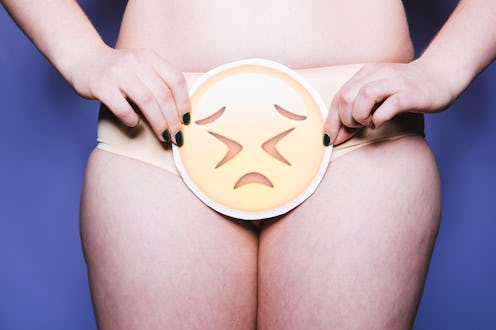Life
7 Health Myths Gynecologists Hear Most From Patients You Should Be Aware Of

There are plenty of health myths floating around out there, but many of them seem to surround our sexual health in particular. Considering most of us get our information from friends or the internet, it's no surprise we get it wrong sometimes. There are some health myths people still believe that gynecologists hear the most, and it's important to be aware of these misconceptions, both because they can actually make a difference in the way you take care of your body, and to ensure these myths don't get perpetuated.
"Health myths are common, since women get most of their medical information from Dr. Google, a best friend, or a trusted relative," Sherry Ross, MD, OB/GYN tells Bustle. "There is a lot of information available outside the doctor’s office, and this can cause confusion and dangerous medical complications. It’s always best to find a reliable healthcare provider to talk to about medical questions that come up day to day. If you don’t, you may be lead down a wrong path that can put your health in jeopardy."
To make sure you're up to date on what's actually true about your health, pay attention to these seven health myths that gynecologists hear most from their patients.
1You Have To Douche To Clean The Vagina
You may want to think twice if you are considering douching. "One of the biggest myths that I have to constantly dispel is the need to douche in order to clean the vagina," gynecologist Tami Prince, MD tells Bustle. "The vagina is self-cleaning and has its own good bacteria and yeast. Douching washes away the good flora and allows for bacteria and yeast that may cause infection to set up in the vagina."
2Cranberry Juice Can Cure UTIs
It's a common myth that drinking cranberry juice will prevent urinary tract infection (UTIs). "There are conflicting studies about this," says Dr. Prince. "Although cranberries do contain an active ingredient that can prevent adherence of bacteria to the bladder wall, not enough of this ingredient is usually contained in juice or pills to make a significant difference. The most likely to benefit from regular use of cranberry juice or pills are women who have recurrent UTIs."
3You Can Get An STI From A Toilet Or Hot Tub
Thankfully, you can't contract an STI just from sitting on a public toilet or entering a hot tub. "Sexually transmitted viruses and bacteria cannot live outside of the body very long and die within a matter of seconds," says Dr. Prince. "As such, there is virtually no way to get an STD from sitting on the toilet. Same goes for getting an STD in a hot tub."
4Birth Control Pills Cause Weight Gain
Most women are under the impression that the birth control pill can cause weight gain, but this is a myth that just won't die. "Usually the weight gain seen with birth control pills is due to water retention," says Dr. Prince.
5Panty Liners Are Good For You
Women often feel more clean when they wear panty liners, whether it's for when they're on their period or to catch discharge. But panty liners can often do more harm than good. "The truth is that they cause more irritation and recurrent infections down there," Dr. Adeeti Gupta, founder of Walk In GYN Care, tells Bustle. "Just cotton panties are the way to go."
6You Can't Get Pregnant During Your Period
Although your chances are low, it is still possible to get pregnant during your period, so you should still use protection. "For some women with shorter intervals between periods (for example 21 days between each period) these women ovulate on day seven or eight, so they are prone to getting pregnant at the end of a long period," says Dr. Ross. "Even though the risk is small, pregnancy can happen since sperm can live for three days."
7Itching & Discharge Must Mean A Yeast Infection
"You may be tempted to go to the drug store and buy over-the-counter medication for a yeast infection if there is any kind of vaginal discharge or itching, but unfortunately, this can make the symptoms worse and delay a proper diagnosis and treatment," says Dr. Ross. "Vaginal cultures can and should confirm what organism is causing your disruptive symptoms so the best treatment can be prescribed. Before you start [using medication] or trying other remedies, it’s best to take a trip to your healthcare provider to check things out properly."
When in doubt about something you hear, always ask your OB/GYN. No question is too silly or off-limits.